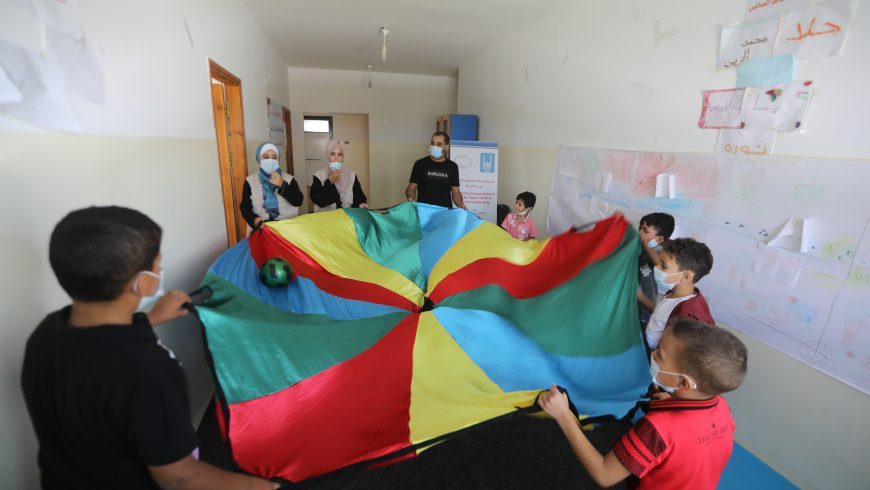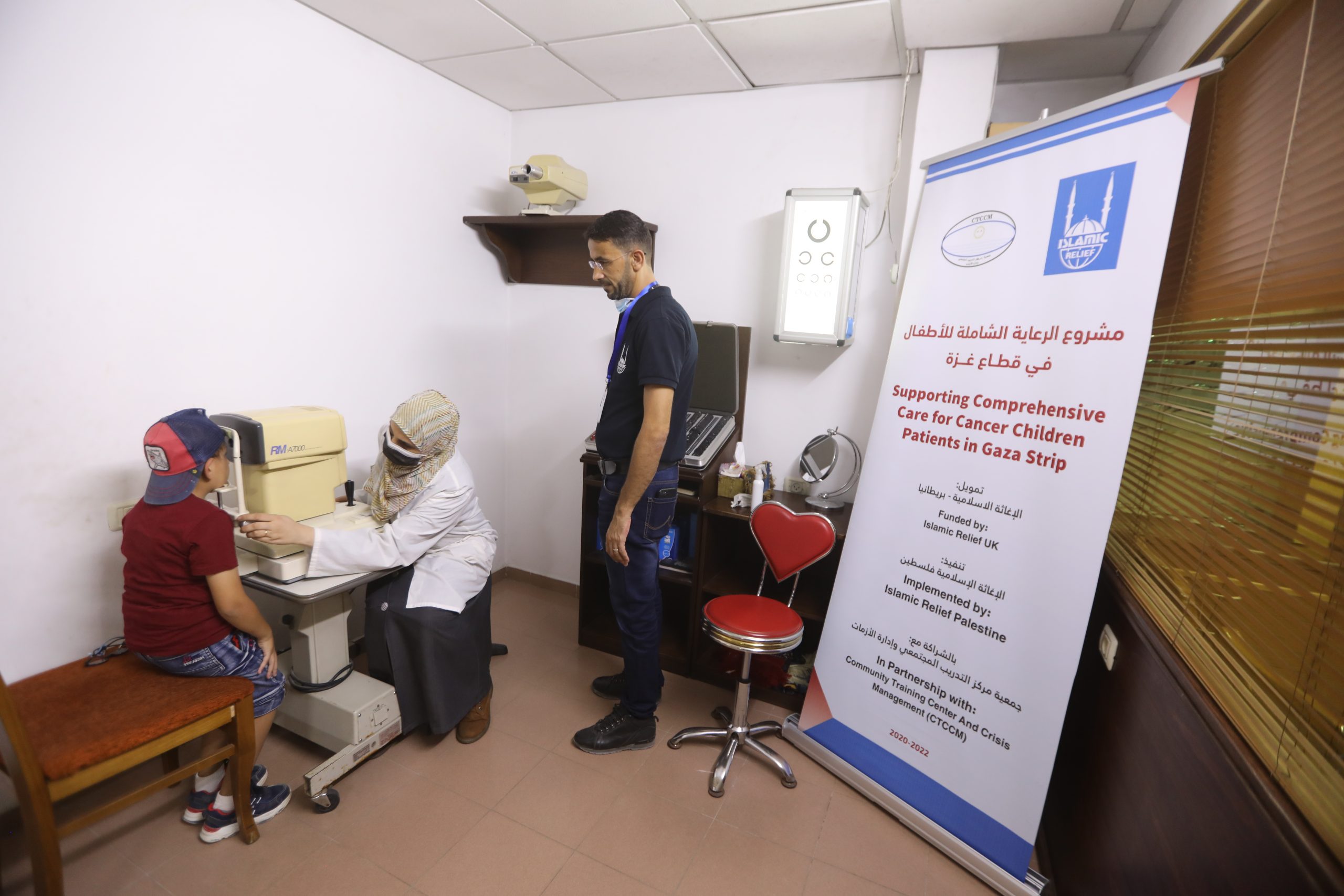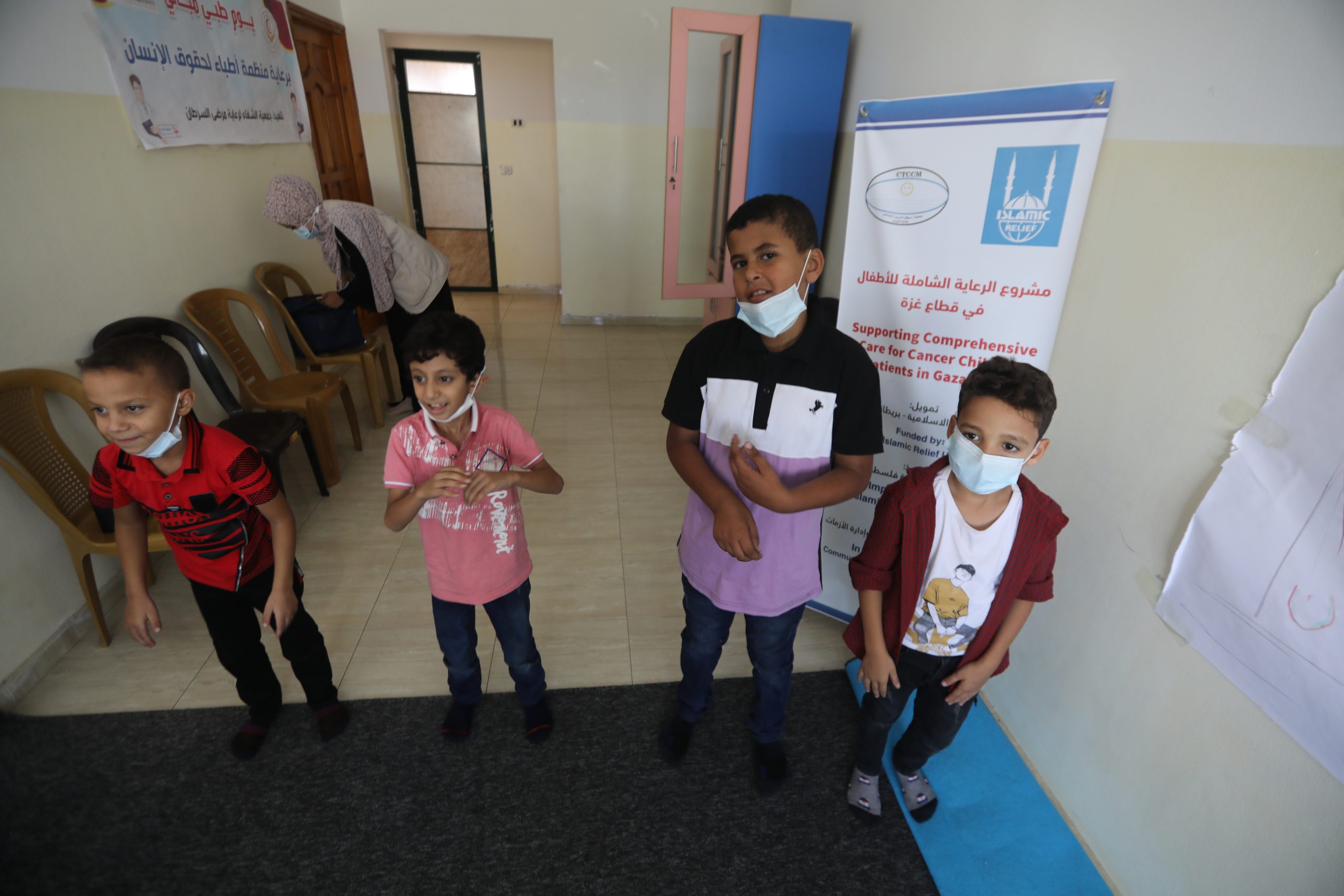Each year, 10 million people around the world die from cancer. It can affect people of all ages and races and, while general health and lifestyle can affect someone’s risk of developing cancer, where we live often plays a major role in our chances of survival.
A whopping 70% of cancer deaths occur in low-to-middle-income countries, according to the Union for International Cancer Control (UICC), which says that millions of lives could be saved each year through improved prevention, early detection and treatment.
Cancer rates are rising in the Gaza Strip where the healthcare system is hampered by ongoing restrictions on the movement of people and goods. Chronic electricity shortages and the Covid-19 pandemic, combined with the destruction of several healthcare facilities during rocket attacks in May 2021, have heaped even more pressure on the healthcare system.
Shortages of medicines, equipment and specialist staff frustrate detection and treatment efforts, meaning the majority of cancer patients in Gaza never receive the care they deserve.
There is no single facility providing comprehensive care to cancer patients – they may have to collect drugs from a Ministry of Health hospital, get tested at a private clinic, and receive scattered psychosocial and educational materials from an NGO. The process is difficult to navigate and can be expensive and exhausting for patients.
The five-year survival rate of patients in Gaza with some cancers is significantly lower than in Israel, and while hundreds of patients each year are referred for treatment outside Gaza, the majority are denied permission to exit.
Providing essential equipment and medicine
In 2020, Islamic Relief began supporting children with cancer, and their families, in Gaza. We began by providing medical supplies and equipment to allow local NGOs already working in cancer care to reach more patients.
So far, almost 400 patients have received drugs and nutritional supplements otherwise unavailable to them. These have helped to keep children active and have boosted their speed of recovery in some cases. We have also provided wheelchairs, medical mattresses and prosthetics to help improve the quality of life of child patients.
Recognising that cancer places a huge strain on the mind as well as the body, a key focus of Islamic Relief’s work has been ensuring child patients in Gaza have access to psychosocial support. We ran group and individual sessions for child patients as well as sessions for families.
Islamic Relief has also created a guide on how to best support the wellbeing of children with cancer and their families, and has trained 6 counsellors and 6 psychologists from local organisations to help continue this vital work.
In the community, we ran awareness-raising campaigns describing the causes and risks of cancer, as well as ways of preventing it. Islamic Relief has also produced a study mapping the availability of cancer care across Gaza, and a development plan with a path to ensuring every patient receives timely and appropriate care.
Our work has so far helped improve access to care for hundreds of patients and their families by removing some of the barriers patients face and allowing them to focus on getting better.
As our project continues, we hope to reach hundreds more children fighting cancer in Gaza.


